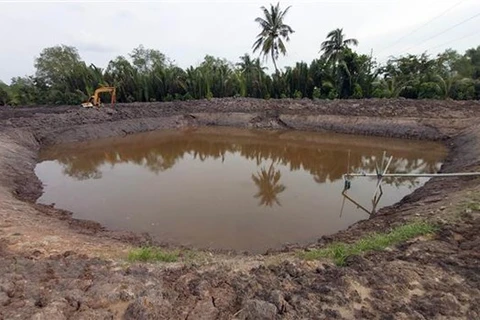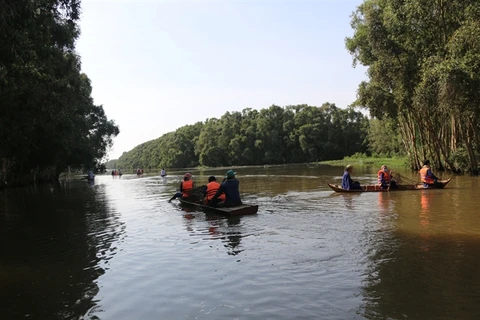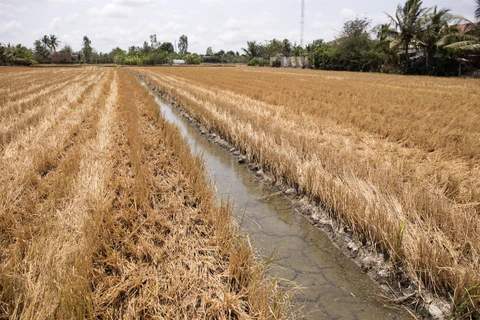Hanoi (VNA) – A draft master plan for the Mekong Delta for 2021-2030 and vision to 2050, recently released to collect public feedback, views climate change as not only a challenge but also an opportunity for local development.
Deputy Minister of Planning and Investment Tran Quoc Phuong said the draft features three guiding viewpoints, with the first respecting the ecosystem’s natural functioning, proactively adapting to climate change, and considering saltwater and brackish water as development resources.
The second is viewing climate change as not only a challenge but also an opportunity to change production models and re-organise the regional development space towards effectiveness and sustainability.
The third is changing mindsets about food security, aligning fisheries, fruit growing, and rice production with markets, developing high-quality agriculture in combination with services, ecotourism, and industry, especially the processing industry, and promoting the value and competitiveness of local agricultural products.
If approved, the planning will serve as the basis for effectively allocating and mobilising resources for development in Vietnam’s largest agricultural hub. That will help achieve sustainable development and adaptation to climate change in line with the spirit of the Government’s Resolution No 120/NQ-CP on the region’s sustainable development, as well as contribute to the Government’s efforts to join the global response to climate change, Phuong noted.
Voicing her country’s support, Dutch Ambassador Elsbeth Akkerman said that as both Vietnam and the Netherlands are highly vulnerable to climate change, the two governments need to continue coordination and work out suitable solutions for responding to the global phenomenon, especially in the Mekong Delta.
To carry out the official master plan, she said that given its limited financial sources, Vietnam should build a concrete financial mechanism for implementation.
The ambassador suggested the Government provide part of the funding and play the leading role in efforts while calling for support from sponsors and development aid funds along with assistance from private investment funds and via public-private partnerships.
At a recent workshop on the Mekong Delta’s sustainable development in adapting to climate change, Deputy Minister of Natural Resources and Environment Le Cong Thanh said climate change is becoming increasingly severe and unpredictable, greatly affecting every socio-economic aspect.
In Vietnam, the Government has issued many policies and taken strong action to adapt to its growing impacts.
One of the highlights of 2020 was the country completing updates to the Nationally Determined Contribution and the issuance of a national plan on climate change adaptation for 2021-2020, with a vision to 2050./.

























